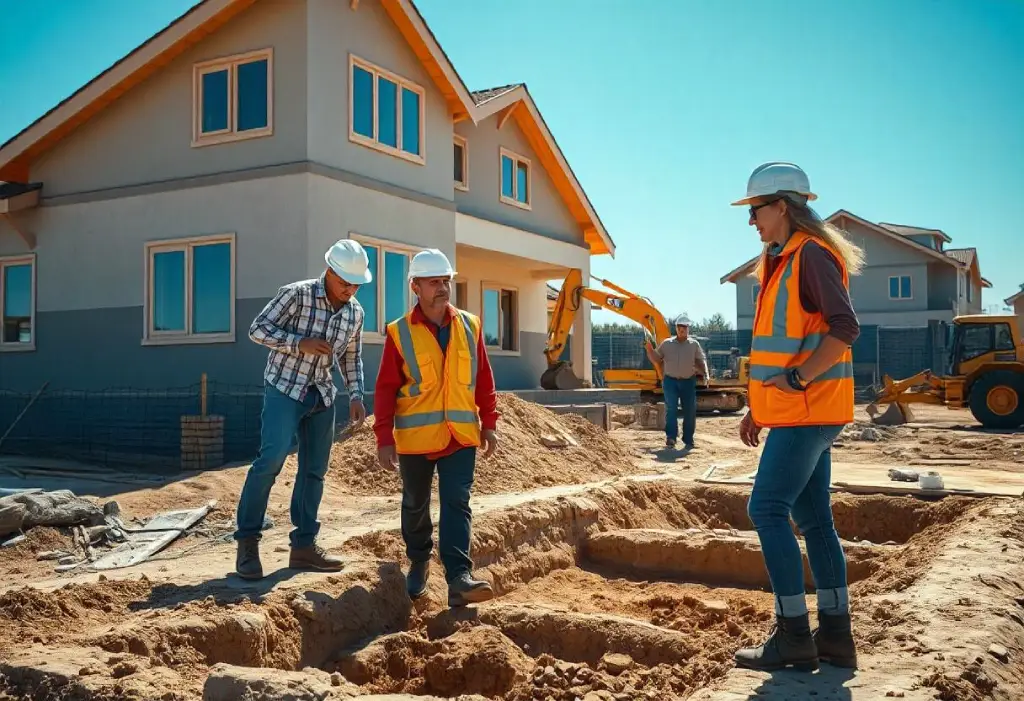Why the construction sector
The construction sector in Spain is undoubtedly one of the key drivers for reactivating the economy and fostering job creation, being one of the industries with the greatest capacity to do so. After the health and energy crisis, which has also highlighted the urgency of addressing environmental challenges, the construction industry faces the need to transform its practices. This means adopting more sustainable principles and strategies, aligning with the current demands of the planet. As a key sector in infrastructure development, its role is crucial for ensuring sustainable economic growth.
The construction of roads, bridges, hospitals, homes, and other infrastructures not only fosters public and private investment but also generates numerous jobs, directly contributing to the well-being of the population.
In Spain, construction stands as one of the main economic drivers, as its activity benefits various related industries, such as steel, cement, wood, aluminum, as well as services linked to it, like construction machinery rental.
The most sought-after profiles today
Today, the most in-demand professionals in construction are not limited to traditional trades such as masonry, plumbing, or electrical work. Technological advancements and the use of specialized machinery have driven the need for more technical and specific profiles.
Aerial Platform Operator
The rise of high-rise projects has increased the demand for aerial platform operators (PEMP). Their work is essential for performing tasks at height safely and within the established timeframes. Operating these machines requires specific training and technical knowledge to meet international standards.
As construction companies often prefer to rent these platforms rather than purchase them, operators must be highly adaptable and experienced to ensure efficient and safe work.
Scaffold Technician
This professional is responsible for assembling and disassembling temporary scaffolding, allowing other workers to perform tasks at height safely. The installation of scaffolding requires precision, attention to plans, and compliance with specific technical requirements. Once the project is finished, the technician must dismantle the structure quickly and safely, always ensuring the protection of those on-site.
Crane Operator
Cranes are essential equipment on any construction site and require qualified operators to move heavy materials with precision. Given the risks involved in this task, it is crucial to have certifications that validate the operator’s ability to handle this equipment safely. The high demand for crane operators, coupled with the shortage of professionals, makes this profile one of the most sought-after in the sector.
Heavy Machinery Operator
This profile involves operating excavators, forklifts, telehandlers, and backhoes. Their responsibilities include digging, paving, transporting, and organizing materials. In many cases, accreditation is required to certify competence in handling such equipment.
Women in construction
Historically dominated by men, the construction sector is experiencing an increase in female participation, reaching nearly 10% of the workforce in Spain last year. According to a report by the Construction Industrial Observatory, the employment of women in the sector grew by 21.4% in 2021 compared to the previous year.
Women are gaining ground in specialized activities such as electrical installations and plumbing. However, much remains to be done to encourage their participation and representation in this field. Various initiatives are promoting the training of women in the different trades of construction, opening the door to professional development in an industry crucial for economic recovery.
Final Reflection
Construction is emerging as a key player in economic recovery following the crises caused by the pandemic, the war in Ukraine, and energy challenges. Investment in infrastructure is one of the most effective strategies to reactivate the economy, as it directly fosters demand and job creation, especially in contexts where private spending is reduced. National and European programs highlight construction as an essential lever for economic recovery, given its positive impact on job creation and its capacity to boost other sectors, such as transportation, housing, or machinery rental. At RialtoSur, we are committed to the construction sector, working together to achieve economic recovery goals and contribute to the progress of the country!
